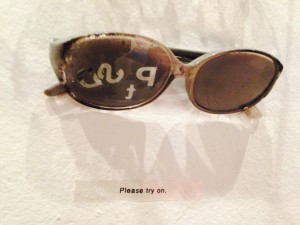Memory Systems, Peter Levine, Part 4 of NICABM Webinar Series
Levine said trauma affects multiple memory systems.
Explicit Memory
- Decalarative, semantic – the what-happened part of memory.
- Episodic memoires, important and meaningful but still in category of declarative.
Implicit Memory
- emotional memories, flags to when we had a similar situation and it alerts us. When you feel strong emotion it gets attention.
- procedural memoires. These are more powerful/deep than emotional. They are things body does when threatened.
He said that until procedural memories are changed people can have insights but will still have trauma repetition.

Art by Christine Cissy White & Margaret Bellafiore. Photo by Margaret Bellafiore
Levine said therapists from elementary school through graduate school are getting educated in systems which are all based on declarative memory. So not a surprise that this one particular form is so common with therapists.
These other systems are TREMENDOUSLY MORE IMPORTANT IN WORKING WIH TRAUMA and have little to do with declarative memory, he said.
Why?
Levine said, “The thing about traumatic memories, they don’t change. Healthy memories constantly updated.”
He says he talks more about how traumatic memories stay stuck and healthy ones consolidated/reconsolildated in his new book coming out in the spring of next year.
He suggests therapist, instead of basically building failure on failure on failure, instead we’re building success empowerment.
He talked about in wild how if a wild animal and has an animal cornered they will bite and escape which is an active response. Compare that with a child who might struggle with an adult but get overwhelmed by the adullts size and feelings of helplessness and uncopability that child has.
Honestly, I can’t even hear this stuff without thinking, EVERY TIME, about how I want a refund for all of the declarative therapy and thinking and sharing done, not for free. I want a REFUND and my time back!)
I wished I had trusted my body and myself more, as I watched others do when they knew they weren’t being helped or feeling better. Not me, I just tried more and harder. I caution others not because I knew better but because I’m an expert worshipper but the answers really do come from within us. The research and information, for me, is also useful and interesting. But the changes, for me, also DO come best and most and deeply IN MY BODY. Yup.
Levine said, when person gets new memory of copability (new memory in the body through body work) the person can move, fend off or do the movements maybe wanted at the time of trauma and that movement becomes an empowered memory which replaces the helplessness.
Levine said, “Frozenness is a procedural memory. A powerful memory of overwhelm and helplessness. This memory is easily evoked.”
He gave example, of in adult life being passed over for a promotion and feeling a helplessness even though the person is not actually helpless the loss of promotion does have effect on family. We perceive it as overwhelmed. We continue to evoke that particular response, he said.
He said this is what he talks about in The Unspoken Voice about and how to help people move through collapse and freezing. How to restore aliveness. Person passes through into empowered experience.
Telling (about trauma) as a fact
doesn’t change effect it had on me
until effect it had on me
is changed
Last blog post tomorrow from Levine’s webinar and then it’s back to writing memoir for me, which for me, with yoga, helps me process and move everything through body, brain and heart.
You Matter Mantras
- Trauma sucks. You don't.
- Write to express not to impress.
- It's not trauma informed if it's not informed by trauma survivors.
- Breathing isn't optional.
You Are Invited Too & To:
- Heal Write Now on Facebook
- Parenting with ACEs at the ACEsConectionNetwork
- The #FacesOfPTSD campaign.
- When I'm not post-traumatically pissed or stressed I try to Twitter, Instagram & Pinterest.
[…] Sacred Traditions, Therapist Bias & The Future of Trauma Treatment, Blog 1, Blog 2, Blog 3, Blog 4, Blog […]